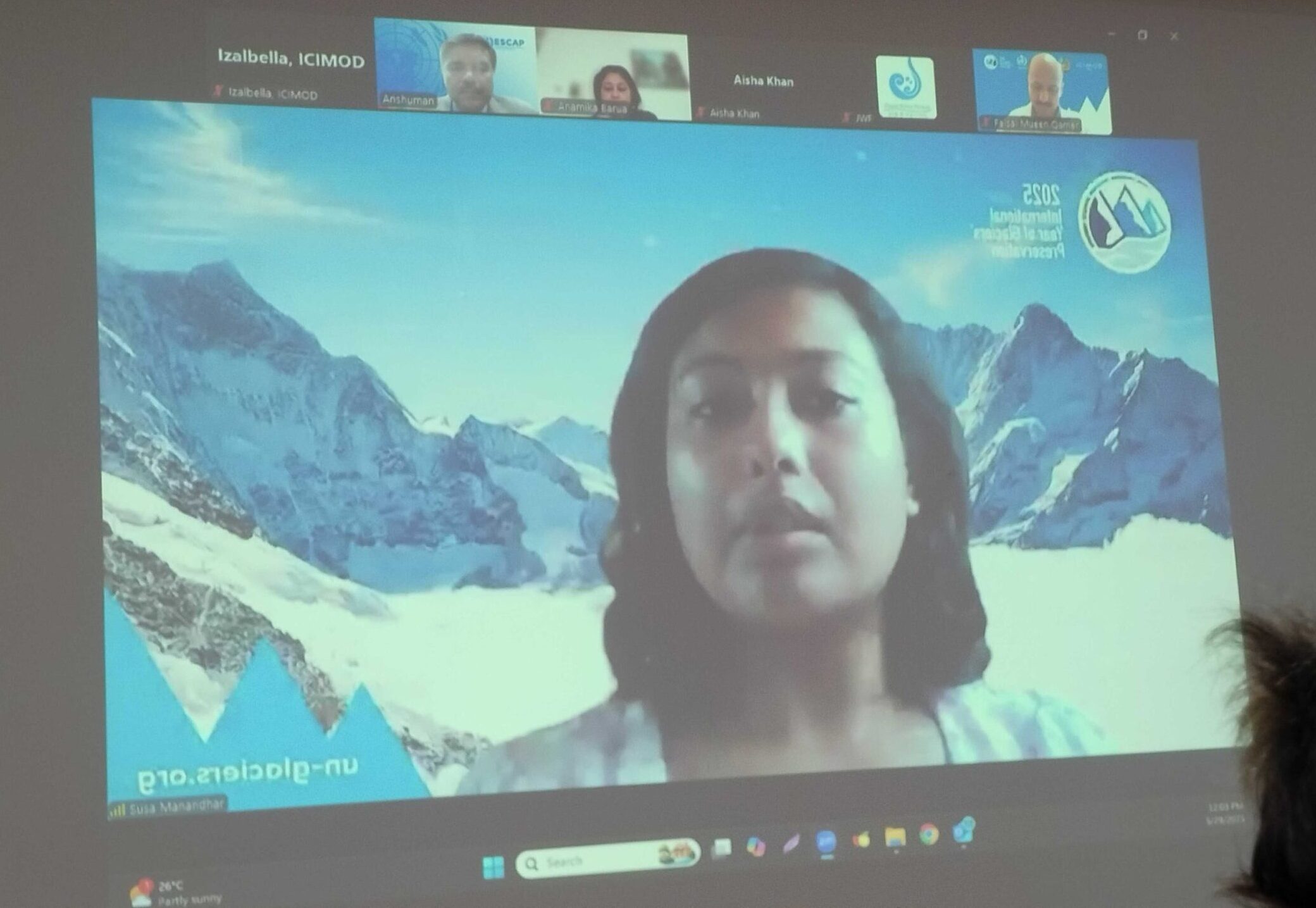Climate change is severely impacting the socio-economic conditions of the small watershed in South Asia thus leading to increasing poverty and food insecurity. The existing traditional practices cannot cope with the rapidly emerging climate change risks in these climate change risk vulnerable areas. Sustainable watershed management practices may enhance the resilience of natural resources to climate change risks (floods/droughts) but lack of knowledge, training, resources and awareness are the main impediments in changing the local community attitude and behavior towards a positive change. Nevertheless, significant funding has been allocated by the international donors for climate research involving simulation modelling for forecasting and assessments of climate risks and impacts but promoting climate risk reduction/mitigation through adaptation practices on farm were largely overlooked. Therefore, stimulated adoption of climate risk resilient practices are urgently required to cope with the emerging climate risks. Addressing these issues, this project is aimed to pursue sustainable management practices on climate risk vulnerable watersheds of South Asia through capacity building of key stakeholders (professionals, farmers and service provider) and sharing of regional knowledge, innovative practices and strengthening linkages for promoting sustainable management of climate change vulnerable watersheds in Pakistan, Sri Lanka and Nepal.
A three days training workshop (March 27 to 29, 2018) was organized by Climate, Energy and Water Research Institute (CEWRI) of Pakistan Agricultural Research Council (PARC) in collaboration with the Central Department of Environmental Sciences (CDES) of Tribhuvan University, Nepal Academy of Science and Technology (NAST) and The Small Earth Nepal (SEN) through the financial support of Asia Pacific Network for Global Change Research (APN) Japan. In her inaugural address, Prof. Dr Rejna Maskey, Head of Department of CDES, highlighted the importance of water sector and watershed management under the current climate change scenario of Nepal and appreciated the project leader for Making Nepal and CDES as project collaborator in this important project. Earlier, in his welcome address Dr Madan Lall Shrestha from NAST and SPG member of APN explained climate change implication of Nepal, APN funding procedure, priority areas and encouraged the local professionals for submitting more proposals. The project leader Dr Ghani Akbar from CEWRI/PARC, Pakistan presented the project overview and workshop schedule. Dr Muhammad Munir Ahmad, Director CEWRI elaborated the climate change risks and stressed the need for a more integrated approach across the region. Dr Archana Shrestha from meteorological department and Dr Bimala Devkota from NAST, Ms Suchita Shrestha from SEN also presented their remarks on the various measures taken by their institutes and took keen interest in the project.
There were two technical sessions with 23 registered participants on first day, focussing on sharing each collaborating country experience related to climate change, sustainable watershed management practices, climate resilience and food security.
The second day of the workshop was focused on presentations and discussion watershed management technologies, approaches and practices with special focus on Nepal. There was one technical session with three presentation followed by group works by participants in prioritizing appropriate technologies and practices of watershed management in Nepal.
The various innovative/best watershed management practices at ICIMOD Knowledge Park, Godavari, Laltipur were demonstrated on third day. Participants had an opportunity to see the technologies in the real ground and also discuss with experts about different aspects of those technologies. Finally, the workshop was concluded with a certificate discussion to the participants.
The workshop was mainly focussed on sharing the regional experience of watershed management and prioritizing the best watershed management practices for Nepal. A diverse group of professionals belonging to research and development organizations, academia, NGOs and Youth group participated in the event beside the international delegates from Pakistan.




